Did you know that wood veneer allows you to apply processes that provide a touch of distinction? If you’re facing a creative block, don’t miss this selection with our product and application proposals.
Smoked veneer board
The smoking process, which is organic, highlights the beauty of the material by darkening it and endowing it with technical qualities such as resistance to rot, fungi, and insects. Notice the exoticism and elegance that the Eucalipto Fumed finish offers, ideal for kitchens (as we saw at Eurocucina 2024) and hospitality.
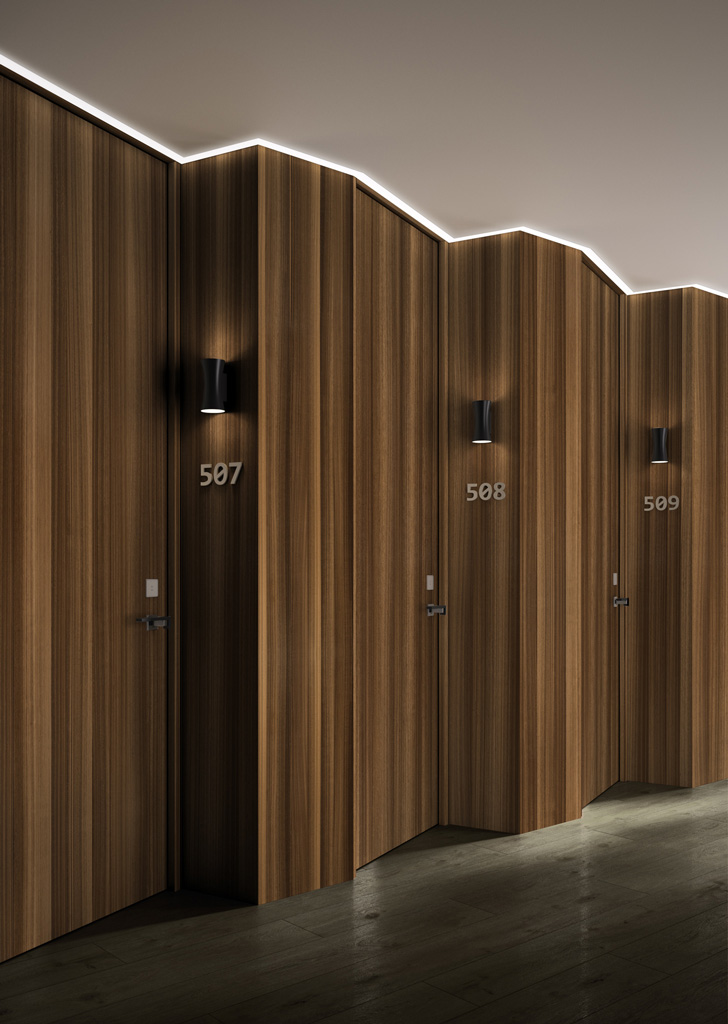
Saw effect
The saw effect is used on Keraban Sycamore to enhance the light surface, where the wood grain is barely visible. These subtle resulting lines, achieved through this process, convey calm and serenity.
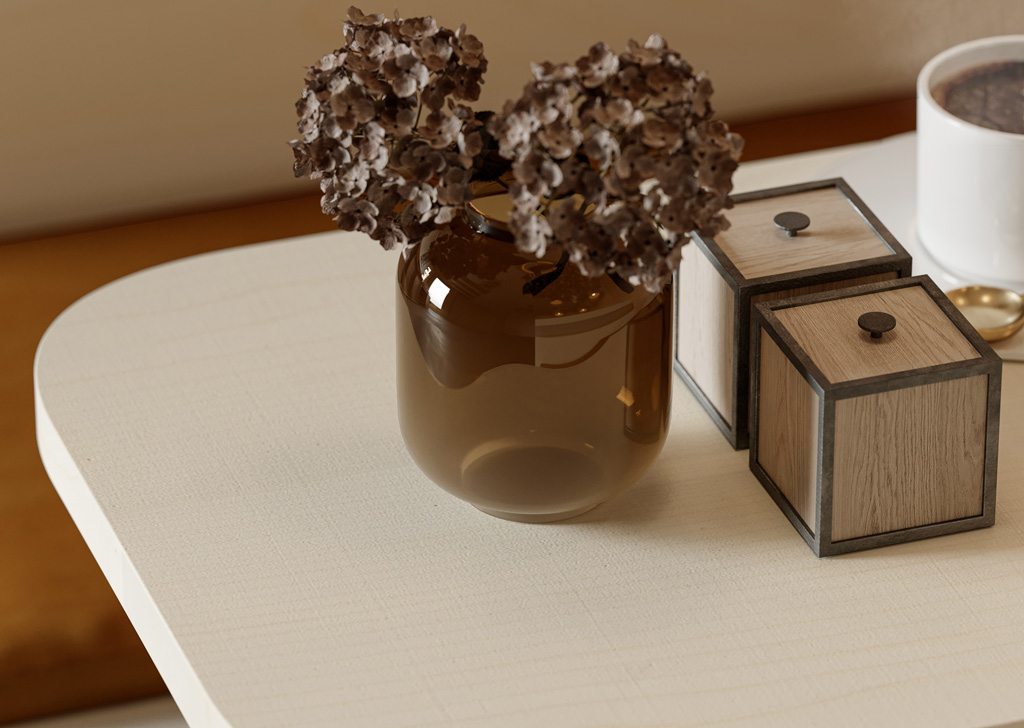
Rustic finish
We bring you a process opposite to the saw effect: the rustic finish. Rustic wood is obtained by brushing it abrasively to highlight the grain. Specifically, Rustic Oak is used in all kinds of environments and is highly valued in the Central European market.
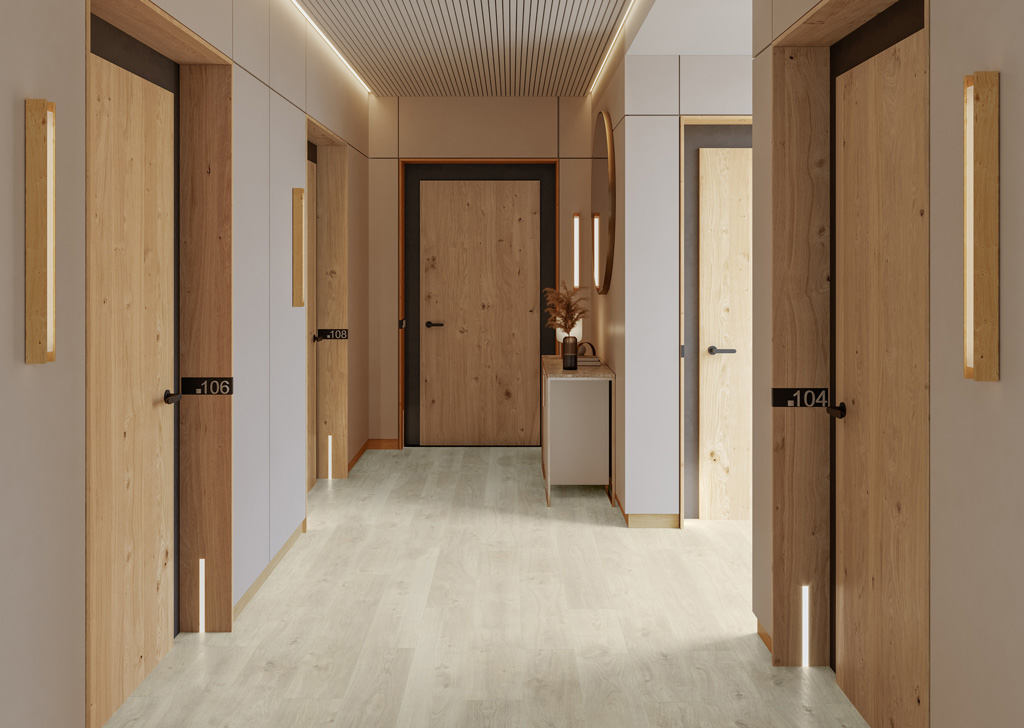
Varnishing
This is surely one of the processes that first came to mind. Varnishing allows the underlying material to take center stage, as is the case with this Merlot Walnut, so you can feel the naturalness of the wood.
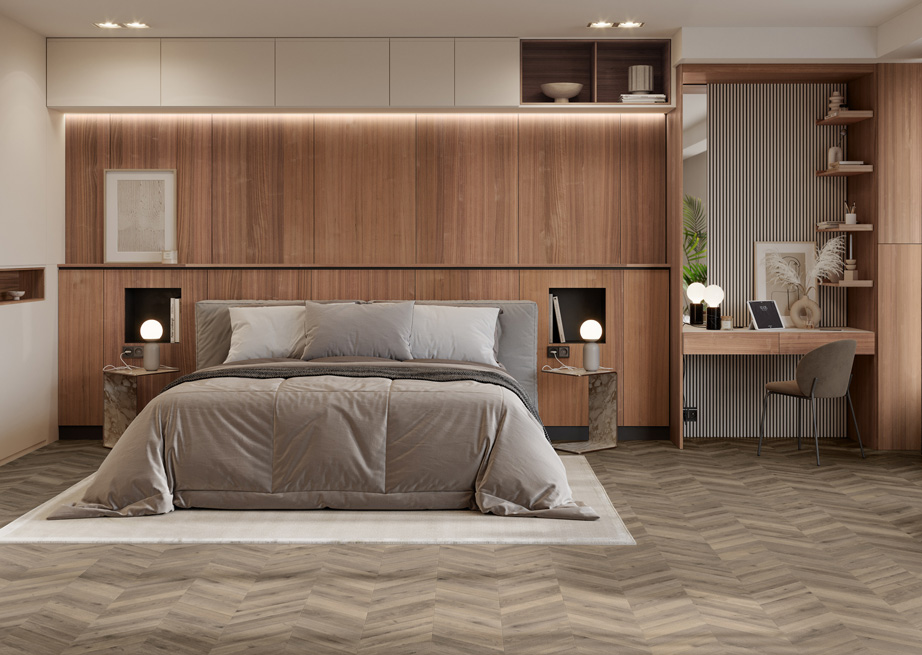
Tinting
Finally, here is the process opposite to varnishing: tinting, which covers with color, allowing only the pores to be perceived. Light and natural veneers are ideal for this process, and we recommend applying a rustic finish beforehand to highlight the pores. At the 2024 edition of the Salone del Mobile in Milan, black-stained wood was one of the most used solutions. Here you have the Natur Vintage Oak, a finish suitable for tinting, where its rustic character is clearly appreciated.
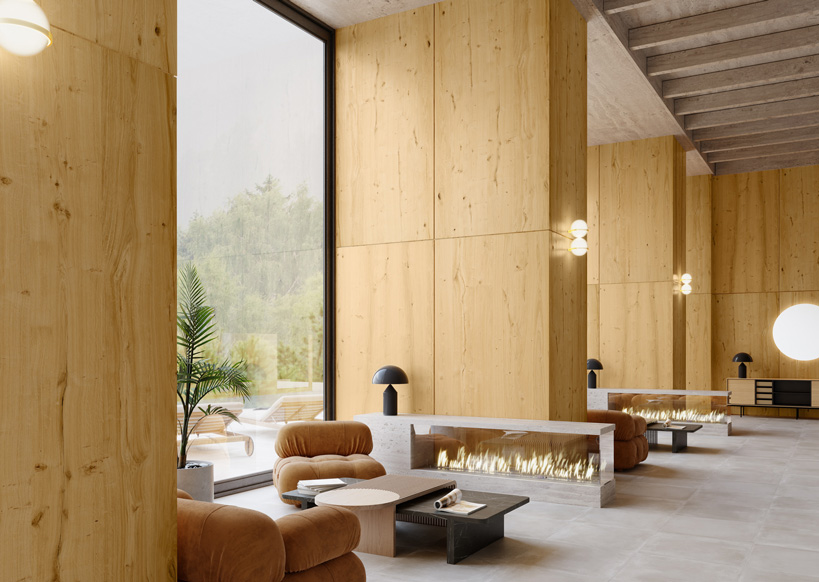
If you liked this post, don’t miss our selection of textures or trompe-l’oeil effects.




